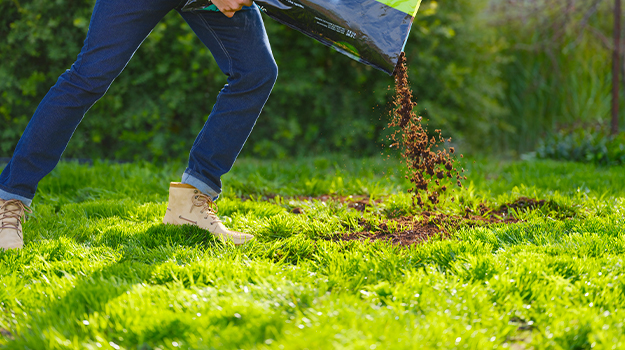Peat moss, or sphagnum moss, is a popular organic material used in gardening. It is derived from partially decomposed mosses and has several benefits for your garden. Let's explore the advantages of incorporating peat moss into your gardening routine.
Improved Soil Structure and Drainage
Peat moss can significantly improve soil structure and drainage, making it ideal for various soil types.
1. Incorporating Peat Moss into Heavy Clay Soil
- Dig up the existing soil and mix it with equal peat moss.
- The peat moss will help break up the compacted clay, allowing better root penetration and drainage.
2. Enhancing Water Retention in Sandy Soil
- Blend peat moss with sandy soil in a 1:1 ratio.
- The peat moss acts as a sponge, retaining moisture and preventing rapid water drainage.
Increased Nutrient Retention and Availability
Peat moss is the best source of organic matter, promoting nutrient retention and plant availability.
1. Peat Moss as a Source of Organic Matter
- Mix peat moss into the soil to raise its organic content. The organic matter in peat moss improves soil structure, promotes beneficial microbial activity, and enhances nutrient-holding capacity.
2. How Peat Moss Releases Nutrients to Plants
- Peat moss has a high cation exchange capacity (CEC), which can attract and retain essential nutrients.
- As plants require nutrients, peat moss slowly releases them, ensuring a steady supply for healthy growth.
pH Balancing and Acidity Regulation
Peat moss is valuable for adjusting soil pH levels and regulating acidity.
1. Using Peat Moss to Lower Soil pH
- Incorporate peat moss into alkaline soil to help lower its pH level.
- Mix peat moss with the soil before planting, ensuring it is evenly distributed.
2. Neutralizing Alkaline Soil with Peat Moss
- Apply a layer of peat moss on alkaline soil to create a slightly acidic environment.
- Over time, the peat moss will help neutralize the alkalinity, promoting optimal plant growth.
Enhanced Seed Germination and Root Development
Peat moss is beneficial for successful seed germination and robust root development.
1. Creating a Peat Moss Seed-Starting Mix
- Mix peat moss with vermiculite and perlite in equal parts to create a lightweight and well-draining seed-starting mix.
- Plant your seeds in this mixture and provide proper moisture and sunlight for optimal germination.
2. Supporting Healthy Root Growth with Peat Moss
- Before planting, blend peat moss into the soil to create a loose, well-aerated environment for root development.
- The fibrous structure of peat moss promotes strong and healthy root growth.
Weed Suppression and Disease Prevention
Peat moss can help suppress weeds and reduce the risk of diseases in your garden.
1. Using Peat Moss as A Natural Weed Barrier
- Apply a layer of peat moss around your plants to act as a natural weed barrier.
- The thick layer blocks sunlight, preventing weed growth and competition with your plants.
2. Peat moss as A Disease-Resistant Medium
- Peat moss has natural antimicrobial properties that can inhibit the growth of certain plant diseases.
- Incorporate peat moss into your potting mixes or use it as a growing medium to help prevent soil-borne diseases.
Sustainable and Eco-Friendly Gardening Option
Using peat moss in your garden is beneficial and environmentally friendly.
1. Peat Moss as A Renewable Resource
- Peat moss is a renewable resource that can be harvested responsibly.
- Look for sustainable peat moss or alternative organic materials such as coconut coir.
2. Environmental Benefits of Using Peat Moss
- Peat moss helps sequester carbon dioxide, reducing greenhouse gas emissions.
- It also promotes water conservation by improving soil moisture retention, reducing the need for frequent watering.
Conclusion
Incorporating peat moss into your garden offers many benefits, including improved soil structure, enhanced nutrient availability, pH regulation, better seed germination, weed suppression, disease prevention, and sustainable gardening practices. Explore the versatility of peat moss and create a thriving garden with these valuable advantages.


